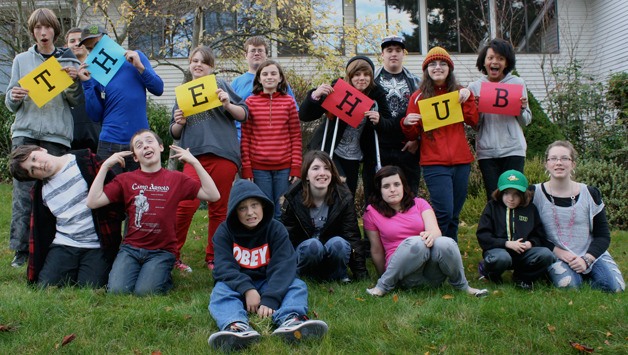South Whidbey wanted to resurrect the HUB, so it did.
When money disappeared from its parent organization, locals picked up the slack, found funding and got the HUB running one day a week last year. The HUB’s board continued to push for support and was able to expand to several days per week, opening its doors in downtown Langley for South Whidbey’s youngsters to eat, play and socialize.
“It’s not a small role,” said Hank Hall, HUB executive director. “We’re having a pretty significant response from the kids; they’re getting a lot out of this. We had a lot of partners in getting the HUB back up to speed.”
And kids sure like the HUB. On average, 22 youths visited the HUB every day it was open. So far this school year, the HUB staff served 100 students a total of 860 meals. That’s a dramatic increase from 2011, when the program was open once a week.
“Attendance was slight last year when it was open just one day a week,” Hall said.
The HUB asked for $5,000 in donations earlier this year, which if met would be matched by Nancy Nordhoff. In total, $10,620 stemmed from Nordhoff’s matching challenge, as money came in from individual donations and contributions from businesses like the Rotary Club of South Whidbey, Windermere Real Estate, Whidbey Giving Circle, Good Cheer, the Screamin’ Banshee Bakery, the Kiichli Bagel Bakery, Whidbey Cupcakes, Shirlee Read of The Kitchen Door, Betsy and Jay Shapiro for providing the youths a dinner from China City, the South Whidbey Parks & Recreation District and others.
That was on top of the program’s garden cart raffle in June. A little wagon full of gardening supplies brought in a big payday of $4,200 for the HUB.
“It really gave us some life and made this possible,” Hall said.
All the money pays for the HUB to run with a program manager, Frankie Petitclerc and another staff member. They monitor the basement of the Langley United Methodist Church, which has acted as the fiscal agent for the HUB and donated the space.
“That’s what enabled us to continue fundraising,” Hall said.
The HUB had plans to open five days a week as soon as funding is available and was waiting for approval of its nonprofit organization status. Running five days per week would cost about $227 per day and would require an annual budget of $67,000. Since reopening in 2011, the HUB has operated with a total funding base of $28,000.



